- Home
- Kathryn Lasky
Ashes Page 6
Ashes Read online
Page 6
“Nein, nein!” the SA trooper replied.
“But maybe a Jew,” said his friend. He cocked his head at Uncle Hessie.
“Ah, maybe a Jew,” Uncle Hessie said. “And if it’s a Jew, I would sell it to him. Perhaps you’ve heard of the PAW.”
I had no idea what the letters PAW stood for.
“PAW?” The man wiped his mouth on his sleeve.
His friend, who was not quite as drunk, leaned forward. “PAW. Yeah, I think I’ve heard of that.”
I was beginning to get a glimmer of what Hessie was up to. He was going to use these louts to get us through the blocked street with nothing nasty happening.
“Of course you have heard of it, my good man!” boomed Uncle Hessie. “Prussian Auto Works. I am the president.” I blinked. Hessie wasn’t the president of anything. He had never worked a day in his life. He was now slapping his motoring coat as if searching for something. He reached for an inside pocket. “Aachh! Left my card at home. But hey, would you boys like a ride?”
“A ride?” The seriously drunk one staggered.
“I know you’re not quite in shape to drive, but hop on the fender, boys. I’ll give you a ride to the next intersection.”
They did, and so we made our way through streets jammed with SA, two Brown Shirts clearing a path for us, one on each forward fender like hood ornaments, waving and shouting their disgusting slogans about death to Jews, Communists, and on and on, and then breaking from the slogans and lurid rants to join in the scattered choruses of the SA’s favorite song. It was called the “Horst Wessel Song” and was being broadcast more often on the radio recently.
Die Fahne hoch! Die Reihen fest geschlossen!
SA marschiert mit ruhig festem Schritt.
Kam’raden, die Rotfront und Reaktion erschossen,
Marschier’n im Geist in uns’ren Reihen mit.
Die Strasse frei den braunen Bataillonen.
Die Strasse frei dem Sturmabteilungsmann!
Es schau’n aufs Hakenkreuz voll Hoffnung schon Millionen.
Der Tag für Freiheit und für Brot bricht an!
The flag high! The ranks tightly closed!
The SA marches with a firm, courageous pace.
Comrades, shot dead by Red Front and Reaction,
March in spirit within our ranks.
Make the streets free for the brown battalions.
Make the streets free for the SA man.
Already millions are looking to the swastika full of hope.
The day of freedom and bread is dawning.
The two SA men slid off the car when we arrived at the next intersection. Hessie pressed on the accelerator and shifted into a higher gear. His face was grim. From the corner of my eye I could see the small throb of a pulse beating in his temple. Neither one of us looked back. There was a sign indicating the direction to Potsdam and thus Caputh. We were going out of Berlin, to the country, away from all that, the brown sludge of the flooding river, the stomp of jackboots. There was still beer slobber from the SA men on the roadster. Hessie drove faster as if to dare the wind to clean it. The landscape flowed by. I put my head against the back of the seat and tipped my face up toward the sun. I am going away.I kept telling myself. I am going away!
I briefly wondered what Herr Doktor Berg had done with my books, if he had read The Call of the Wild. I was just about to ask Hessie if he could get me another copy when I heard his rather high but sweetly scratchy voice carrying above the rush of the wind.
Pack up all my care and woe.
Here I go, singing low
Bye bye blackbird.
I knew these lines. They were from a very popular American song. Josephine Baker had brought it to Berlin and it swept through the city from the cabarets to the fanciest parties, to Mama playing it on the piano when she and Papa had dinner guests. I loved this song. I looked over at him and he winked at me. I joined in.
Where somebody waits for me.
Sugar’s sweet, so is she.
Bye bye blackbird.
No one here can love or understand me.
Oh, what hard luck stories they all hand me.
Make my bed and light the light.
I’ll be home late tonight.
Blackbird, bye bye.
If only I could have driven to the ends of the Earth with Hessie singing all the way, the peach chiffon scarf fluttering at the edges of my face, looking though the amber-tinted goggles as Germany slid by.
chapter 11
My darling, we sat together, We two, in our frail boat; The night was calm o’er the wide sea Whereon we were afloat.
The Specter-Island, the lovely, Lay dim in the moon’s mild glance; There sounded sweetest music, There waved the shadowy dance.
It sounded sweeter and sweeter, It waved there to and fro; But we slid past forlornly Upon the great sea-flow.
- Heinrich Heine,
translated by James Thomson
“Look! Why don’t they trim their sail?” Uncle Hessie looked toward the small sloop perhaps one hundred meters to our starboard side. It was the morning after our arrival in Caputh. We were out on the lake early to sail. The boat Hessie was looking at with the floppy sails was Einstein’s Tümmler, which means “porpoise.” Professor Einstein was at the tiller and Papa was his crew. I was at the tiller of my boat. Like Einstein’s, mine was a sloop, single-masted, same class—a “snipe”—fourteen feet in length. My boat was called Ratty. People always teased me because it was such an ugly name. But it was the nickname of River Rat, one of my favorite characters from one of my favorite books, The Wind in the Willows, who just loved to mess around in boats.
At the moment we were not simply messing about but racing. I was the captain and Uncle Hessie was my crew. I was dressed in my old gymnastic culottes, Hosenrock. I looked at Tümmler. Papa wore a straw hat, but Einstein wore a handkerchief on his head knotted at the corners into a square. It looked ridiculous. I had told Papa that he must never wear a knotted handkerchief. It was so old-man-looking and silly, too. We were becalmed, but there was a riffle of wind where they were. Einstein and Papa were not paying attention, though.
“Idiots! Dummköpfe,” I muttered.
“Well, why don’t they sheet in and take that wind?” Hessie muttered.
“I’ll tell you why. They are too busy gabbing about the universe to see what’s happening on this little lake. Their heads are not in the clouds—they’re in the exosphere, the ionosphere. They are thinking about interplanetary gases and God knows what, but not this wind that we are about to catch! Get ready, Hessie. Here it comes!”
It was just a slight breeze but Hessie was ready. I kept my eyes glued to the two little ribbons called telltales I had tied to the wire stays of the mast. I had detected a slight quiver, then a flutter. I pushed the tiller a bit to bring Ratty just a sliver closer to this nearly phantom wind. When the two ribbons were streaming parallel to the sail I knew we would be at the proper angle to the wind. In another half minute they were. Gently Hessie trimmed the sail. Soon we were sliding by Tümmler.
“Auf wiedersehen!”Uncle Hessie called, and tipped his crisp white yachting cap to Papa and Einstein. We won the race.
It was later the next morning when I saw Hessie coming down the hall with his valise from the guest bedroom.
“Uncle Hessie!” I hissed from the door of my bedroom, which I had opened just a crack. “Come here!” I peeked out and beckoned him with my finger. He set down his valise and with exaggerated tiptoeing came over to the door.
“What’s up, Liebchen? A plot? A secret romance?”
“Don’t be silly. It’s just that—well, I’m a little bit worried.”
“What about?” He looked genuinely concerned.
“You, Uncle Hessie.”
“Me?”
“Yes.” I sighed. What had happened in Bayerischer Platz when we left Berlin seemed like a million years ago, even though it was only two days before. “I’m worried about—” I hesitated—“well, you know wh
en we left Berlin and those awful SA fellows came up to the car and how you told them you were the president of that . . . that . . .”
“That made-up company?”
I nodded. He crooked his finger under my chin and lifted it a bit. There was a look that was almost like mist in his hazel eyes, one part wistful and one part mournful, perhaps. There is a word in German that means to feel a bit of each of these sentiments. The word is nachtrauern. And I had never in my life seen that feeling in Hessie’s eyes, but I did now.
“Don’t worry, Liebchen. Those fellows were too drunk to remember anything.” He sighed. “And all this will be over soon. It’s a passing thing, a fashion.”
It was so like Uncle Hessie to view all the world through his scrim of style, fashion, and taste. “Kleinbürgertum—the pretty bourgeois—the lot of them, KB,” he muttered. To be KB was not good in Hessie’s book.
“Baba says they are barbarians, Barbaren.”
“How alliterative!” Hessie exclaimed, and bent down to kiss my cheek.
“Don’t make jokes. Hertha’s not KB,” I blurted out.
“Hertha?” He was puzzled. “What does Hertha have to do with any of this?”
“I’m not sure. But she said to me a few weeks ago, before school let out that . . . well . . . she thought that . . .” I squeezed my eyes shut trying to remember her exact words. “She said that the Communists will make things worse and she felt that there might be a chance for things to get better with Hitler.”
Hessie’s eyes darkened. He seemed to almost shrink a bit. His shoulders dropped.
“And Uncle Hessie, Hertha wasn’t drunk like those louts. She was just . . . Hertha.”
“She’s tired.”
“Tired? What are you talking about? Do you see the way she buzzes around this house cooking, cleaning, helping Mama in the garden?”
“She’s tired of being poor.”
“But she has a good job with us.”
“It’s more than that. She’s proud. She is tired of being a loser. Germany lost the war. Our country has been humiliated by the Versailles treaty. And there are some people who, how shall I put it . . . they want a scapegoat, someone to blame. Jews, Communists. If they can blame someone, if those people are punished, then everything will be all right again.”
“But Hertha’s not like Herr Himmel, our Hausmeister. He’s mean. He’s horrible. He worships Hitler, I am sure.”
“Oh yes, Herr Himmel. You are probably right about him, and you’re also right about Hertha. She is nothing like Herr Himmel. But you have to understand, Gaby, that you don’t have to be mean to hurt.” I bit my lip slightly, a habit I had when I was thinking hard. “Complicated, isn’t it?” Hessie said.
“Yes,” I said softly, looking down at my bare feet. But then I had a sudden thought. I jerked my head up. “Uncle Hessie, how many Herthas are there in Germany?”
He shook his head wearily, then turned and went back down the hall to fetch his valise.
We quickly settled into the summer rhythms of our lake house in Caputh. I slept late. Mama and Papa were nice about that. Some parents made their kids get up early and go swimming in the ice-cold morning water of the lake, or do calisthenics, like the Rudemeirs two cottages down. Not Mama and Papa. Everyone got to do what they wanted, including Ulla who had stayed in Berlin. It was a holiday. Oh, except for one thing. I was the designated mouse hunter. We set traps at the end of summer and when we came back, after the winter, we emptied them. But invariably we would forget where we had put some, and a smell would begin to emanate. I was famous for my sensitive nose. Mama said I should be a parfumier and blend scents for perfume manufacturing.
But mouse work occupied only the first few days at the beginning of the summer. After that I got to do just what I pleased, which was sleep late, sail, swim, or fish. Papa and I both loved to fish from the end of our pier. There were lake trout, something we called grubbies that were a kind of small salmon, and silver bass, which were not quite so common, but delicious. We had fish for dinner four nights out of five.
When I was not sleeping late, sailing, swimming, or fishing I would read. In Caputh I could read my books not stuffed into my school textbooks. I read them “naked” as I thought of it—wherever and whenever I pleased. Mama even let me read at the breakfast table and during lunch and sometimes during dinner if there weren’t guests. I read everyplace—the hammock, the bathtub, the ice-cream shop in the village—everyplace except on my boat Ratty, for one really must tend to business on a sailboat, even when not racing. I sometimes wondered about the two books Herr Doktor Berg had confiscated from me. I hoped he hadn’t lost them.
For Mama, doing as she pleased meant practicing the music she never got to teach to her students. She loved early music that was made for the virginal, a musical instrument similar to a harpsichord but invented in the Middle Ages. Of course her second greatest pleasure was working in the garden. She would often work out there late into the evening, if there was enough moonlight. She called these times her stealth attacks on garden invaders. Like some kindly witch, she would steal out into the night with her strange potions—diluted laundry bleach, squashed garlic, baking soda, and something called elixir of bergamot. Apparently it worked wonders in vanquishing aphids, one of the worst garden pests. Mama was not dependent only on chemical warfare, however. She was a strategist as brilliant as any general or statesman. Forget von Hindenburg and his triumph at Tannenburg. She was more of a Bismarck, the superb diplomat-engineer who united Germany through political maneuvering and war. She figured out strange alliances between plants and insects. Put nasturtiums next to tomatoes and the flowers will drive off aphids. Grow basil near asparagus and get rid of the beetle that devours the stalks.
Papa’s garden in the summer was the night sky, unpolluted by city lights. He especially relished the moonless nights. He had several telescopes that he would wheel out onto the lawn to gaze at this night garden that bloomed with the ancient brilliance of stars embedded in other galaxies, of planetary nebulae, those last dying gasps of gas blown off from withering stars. When it was cloudy, Papa would go over and have an evening smoke with Einstein.
One morning a few weeks into the summer I went fishing hoping to catch a silver bass but instead only got a half dozen of the little grubbies. I was walking up from the lake to the back kitchen door to deliver the catch so Hertha could clean the fish when I heard the sound of the radio. The announcer ’s voice crackled through the screen kitchen window into the calm of the morning.
“Street gangs, apparently including some SA members, went on a rampage. . . .” There was a temporary blast of static, but then the voice resumed clearly. “Last night, destroying a large part of the Jewish section . . .”
I stopped and listened. Through the screen window I could see Hertha calmly preparing a pie crust. I knew it was a pie crust simply by the rhythm of her shoulders as she rolled out the dough.
“The blaze, thought to have been fueled by petrol, was so hot that the fire brigades could not get close enough without great risk for several hours. . . .”
I simply could not walk into the kitchen at this moment. I set the fish on the wooden worktable where Hertha usually cleaned them and began to gut them myself. I had seen Hertha and Papa do this countless times. I had always thought myself too squeamish to slit open their bellies and scoop out their intestines. Get over it, I told myself. The newscaster finished his report on the synagogue and then moved on to a report about the Frankfurt beer festival. I slit the pale pink belly of the first fish, scooped out the swirl of intestines, and threw them into the trash. I glanced through the window at Hertha. She was still crimping the edges of the pie. I could tell by the look of fierce concentration on her face. Her pie edges were always perfect.
We had no guests for dinner that night, so I brought two books to the table. We were having the grubbies I had caught and cleaned. These were always cooked whole, and then it was up to each person to fillet his or her own fish by removing th
e bones from the split body.
“Your fish is getting cold,” Hertha said. “Here, I’ll fillet it for you while you read.” She whisked my plate away. I looked up from my book.
“Oh, thanks, Hertha,” I replied. My eyes followed her. She was standing at the sideboard, deboning my fish. She had earlier thanked me for cleaning the fish. I hadn’t told her why I had stayed outside and done it; that I couldn’t enter the kitchen as she calmly rolled out the pie crust and listened to the news. Maybe she hadn’t been that calm. Maybe I would have appeared calm to someone watching me gut the fish. But the question I had asked Hessie was still scraping at the back of my mind. How many Herthas? It seemed somehow an unfair question, I told myself. She was just Hertha—sweet, kind, always ready to help.
“What are you reading, little mouse, two books?” Papa asked.
“Yes, The Adventures of Huckleberry Finn and this book of Heinrich Heine’s poetry.”
“How can you keep them straight?” Mama asked.
“Well, that’s sort of the point,” I replied.
Mama blinked. “I don’t understand. You want to be confused?”
“Not confused, really. You see, I have a theory about reading.”
“Yes?” Papa said leaning toward me. Now he was interested. He loved theories.
I took a bite of the fish, chewed, and arranged my face into a thoughtful countenance. I really was thinking. I had already worked out the theory but I was not quite sure how to explain it.
“You see, I think it is good to read two books at almost the same time. One funny and maybe a bit raucous.” I tapped on the cover of the Huckleberry Finn book. “And one romantic.” I tapped on the poetry book.

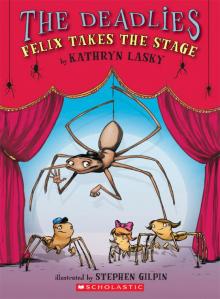 Felix Takes the Stage
Felix Takes the Stage Lucy
Lucy Lone Wolf
Lone Wolf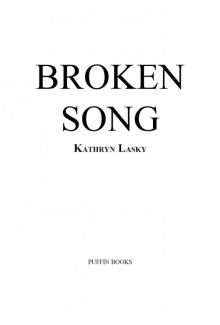 Broken Song
Broken Song The Shattering
The Shattering The Crossing
The Crossing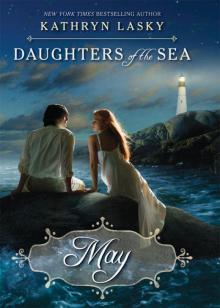 May
May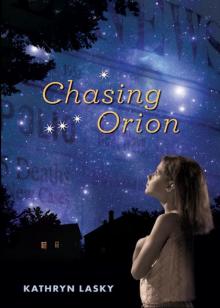 Chasing Orion
Chasing Orion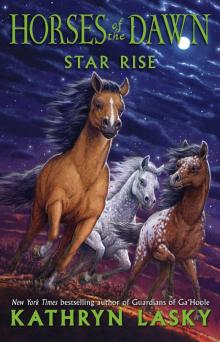 Star Rise
Star Rise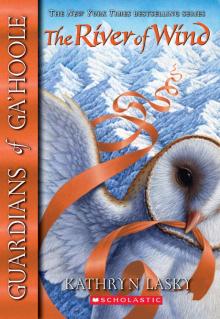 The River of Wind
The River of Wind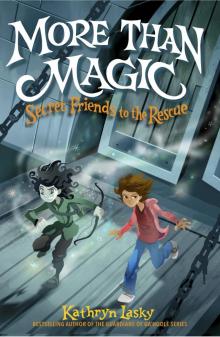 More Than Magic
More Than Magic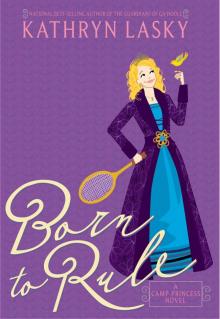 Born to Rule
Born to Rule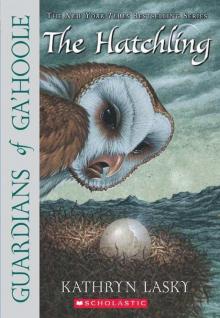 The Hatchling
The Hatchling The Rescue
The Rescue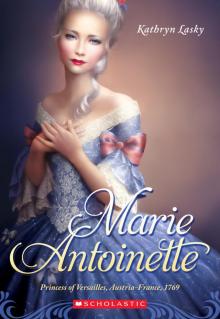 Marie Antoinette: Princess of Versailles, Austria - France, 1769
Marie Antoinette: Princess of Versailles, Austria - France, 1769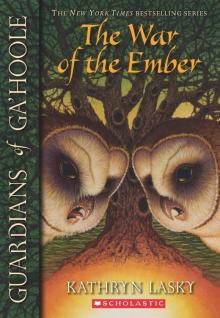 The War of the Ember
The War of the Ember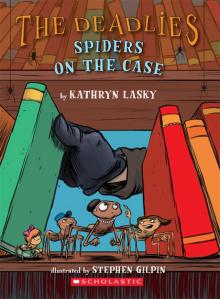 Spiders on the Case
Spiders on the Case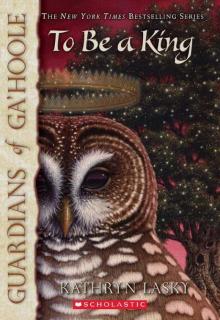 To Be a King
To Be a King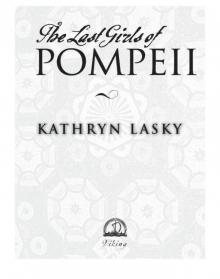 The Last Girls of Pompeii
The Last Girls of Pompeii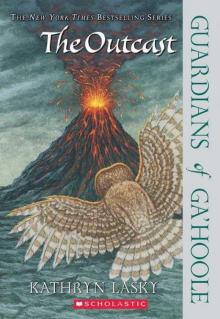 The Outcast
The Outcast Exile
Exile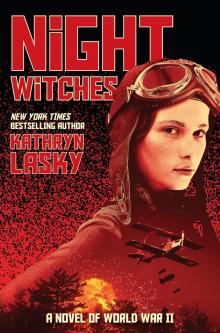 Night Witches
Night Witches Spirit Wolf
Spirit Wolf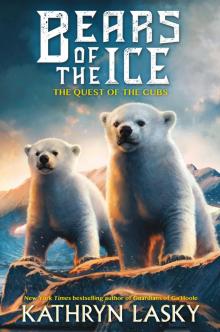 The Quest of the Cubs
The Quest of the Cubs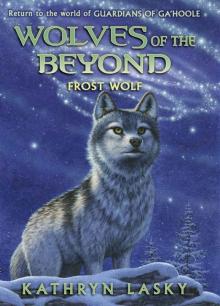 Frost Wolf
Frost Wolf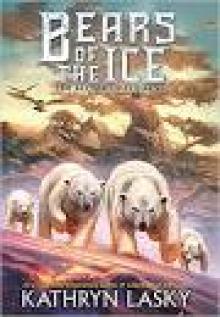 The Keepers of the Keys
The Keepers of the Keys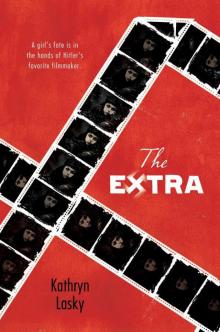 The Extra
The Extra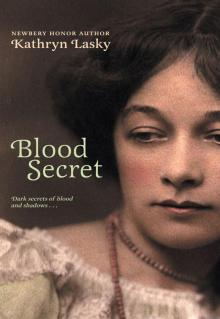 Blood Secret
Blood Secret Watch Wolf
Watch Wolf Blazing West, the Journal of Augustus Pelletier, the Lewis and Clark Expedition
Blazing West, the Journal of Augustus Pelletier, the Lewis and Clark Expedition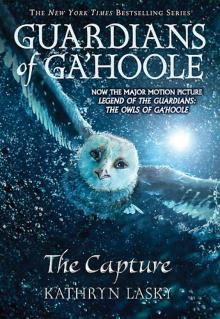 The Capture
The Capture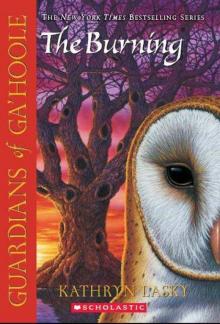 The Burning
The Burning The Journey
The Journey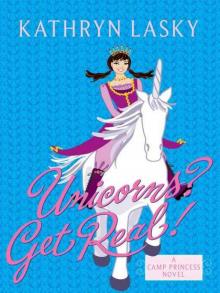 Unicorns? Get Real!
Unicorns? Get Real! The Escape
The Escape Star Wolf
Star Wolf Ashes
Ashes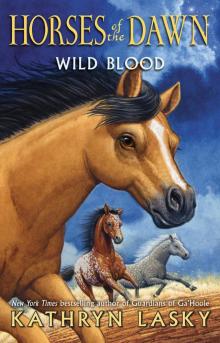 Wild Blood
Wild Blood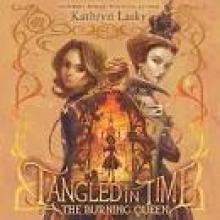 Tangled in Time 2
Tangled in Time 2 The Siege
The Siege Hannah
Hannah Elizabeth
Elizabeth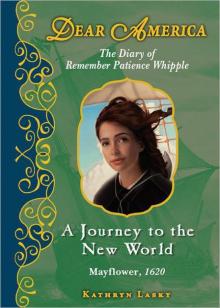 A Journey to the New World
A Journey to the New World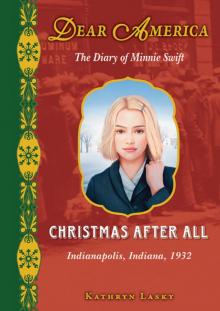 Christmas After All
Christmas After All Mary Queen of Scots
Mary Queen of Scots